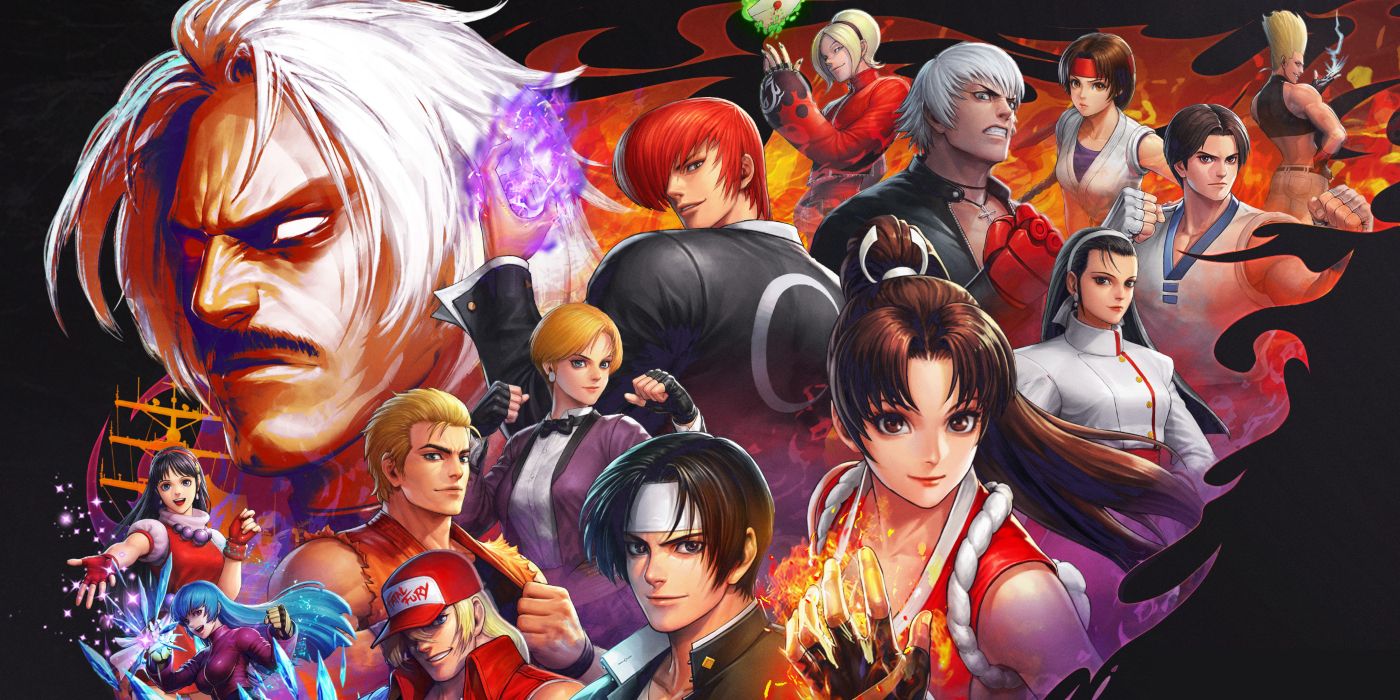
Video game company SNK has become known as of late for its numerous deals with other companies in order to extend the reach of its IP. From Nintendo to Netmarble, the King of Fighters brand, especially, has become a name that's known as much for its crossover appeal as for its own brand of fighting games. As with any sort of IP usage, however, there are inherent risks that come with such deals.
For every deal that results in a guest character making their way into Samurai Shodown or another SNK game, there are also deals that result in the SNK characters finding their way into other products and brands. These crossovers normally present the SNK characters or IP similarly to guest characters or appearances in other games and products, but there are occasions where SNK characters land in products unrelated to video games. Without careful quality control, the results can be disastrous.
In 2019, it came to light that SNK had partnered with the Japanese company Okamoto (via Twitter user TheGoGoChen) to make King of Fighters-branded condoms. Several characters in King of Fighters XIV, such as Kula Diamond and Nakoruru from SamSho, are canonically underaged, yet they were featured on the branding of this decidedly adult product. Even for a company that made a video game as lecherous as SNK Heroines: Tag Team Frenzy, this struck as a new low for fans of the franchise.

Later in the same year, SNK would go on to publish The King of Fighters for Girls, a dating sim title that, as the title indicates, was made specifically with the female demographic in mind. Currently only released in Japan, the title itself and its standing as an "otome" adds fuel to the sexist discourse regarding the types of games deemed marketable toward women. In a misguided effort to attract more women to its fighting games, SNK licensed a game "for Girls" to date the men of the KoF roster. SNK's history of erroneous marketing would then extend to a failure in its vetting process.
In October 2020, an ad appeared on Facebook for the Chinese mobile game SNK All-Stars, an officially licensed product for SNK. The ad features one of SNK's mascots, Terry Bogard, riding a motorcycle down the street before slapping the backsides of fellow KoF alumni Mai Shiranui, Blue Mary, and Kula Diamond, the last of whom is canonically 14 years old. SNK apologized for this ad, claiming it was not aware and officially filed a complaint to remove the ad. However, as it is SNK's licensing, this does not excuse the lack of oversight by SNK in regards to the use of its own IP in promoting a game that it is publishing.
With gamers around the world becoming more aware of the SNK brand through its crossovers and guest appearances in other games, such as Terry's appearance in Super Smash Bros. Ultimate, it stands to reason that there is an intrinsic benefit in these sorts of marketing and licensing deals. However, this increased awareness should also come with increased care in the use of SNK's IP. The last year has shown SNK's flippant use of its IP for marketing can not only damage its own brand but the brands of its collaborative partners by association - not to mention potentially hurting viewers of these collaborations' offensive content. With the next King of Fighters title still missing-in-action, it's become clear that SNK is busier licensing its products than making them.
Source: TheGoGoChen/Twitter
from ScreenRant - Feed https://ift.tt/3eeAcfb

0 Comments